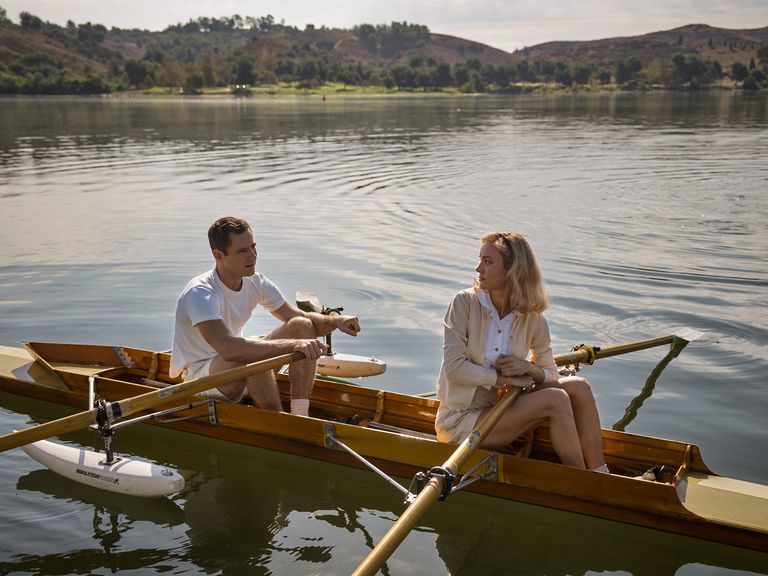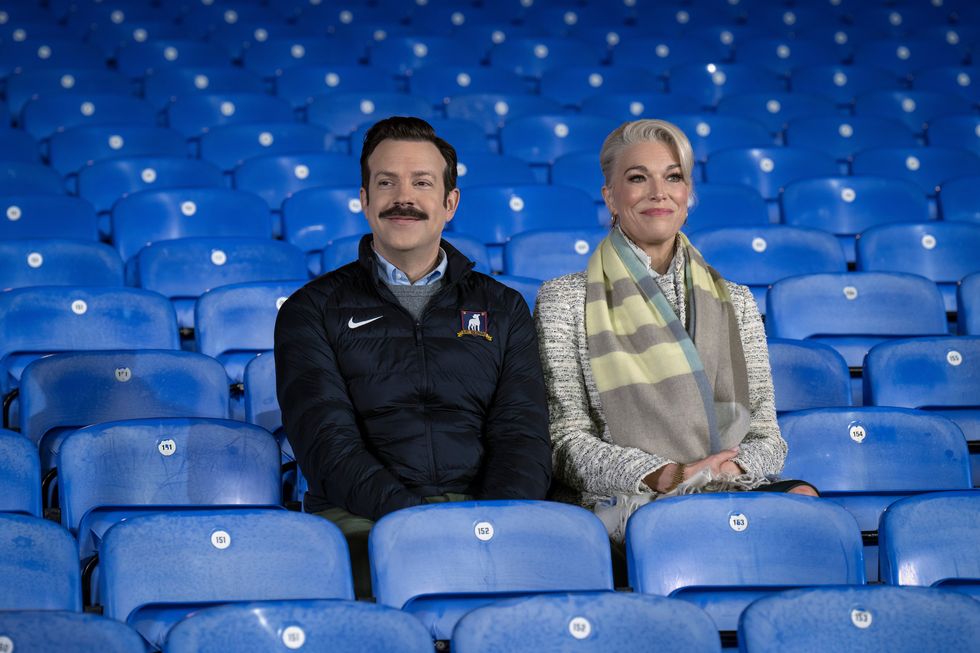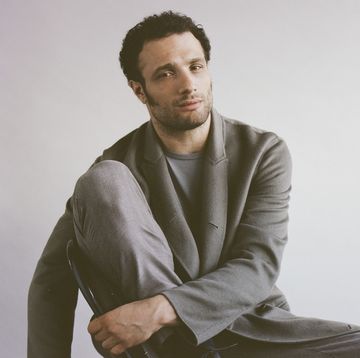Something strange is happening at parties: people have started talking about television. Not that unusual-sounding, perhaps; what is there to talk about apart from other people and the weather and whether you liked that friend’s wedding and what, exactly, you would have done different to make it better. What is strange is that a growing number of the shows discussed are from Apple TV+. Last week, improbably, someone told me they were obsessed with the sci-fi drama Silo. At a child’s birthday, a relative started evangelising about Shrinking. My best friend recommended Platonic (I liked Platonic!) at an engagement drinks. Is Apple TV now... a talking point?
It seems strange to call anything related to Apple, one of the biggest technology companies in the world, an underdog. But I must stress that when the streamer launched in 2019, it arrived with a show about Emily Dickinson and a newsroom drama about sexual harassment. And yet, I have now watched Shrinking and Platonic and Loot and Hello Tomorrow! and Shantaram and a single episode of The Crowded Room. I watched Severance and Ted Lasso. I endured and enjoyed The Morning Show. I know that I absolutely must watch Bad Sisters, and I have promised at least six people that I will. The company’s film division, Apple Original Films, includes Oscar-winning coming-of-age weepie CODA, Jennifer Lawrence drama Causeway and Martin Scorsese’s Killers of the Flower Moon. You can watch Fingernails there. For a long time, watching Apple TV+ shows was a lonely activity – there was no Squid Game or The Queen’s Gambit! – but it’s starting to feel a little more pally.
Apple TV’s latest venture, Lessons in Chemistry, is bathed in prestige. The 8-part television series is based on a bestselling novel of the same name by Bonnie Garmus and tells the story of a female scientist who becomes a TV chef in the 1950s. It is led and executive-produced by Brie Larson, who won an Oscar for her performance in Room. It looks absolutely gorgeous, Mirren Godon-Crozier’s costume designs are thoughtful and lovely. Cinematography, from Zach Galler, allows the actors to breathe. If you liked the book, there is a good chance you will like the show. And if you didn’t like the book, there is also a good chance you’ll like the show: that tone, which can only be described as whacky, is somewhat muted on-screen, rolled under Apple’s touch, which makes everything look expensive.
Watching Lessons in Chemistry, I wondered: is this what streaming is supposed to be? Am I supposed to watch a tasteful series every few months and then wait for an Oscar-winning film to catch on a Sunday night? It certainly feels more sustainable than trying to keep up with Netflix with its ever-rolling agenda of teen dramas, schlocky documentaries and films which seem to run on parody. This month, the rental-store-turned-streaming-giant released a film called Old Dads about old dads which currently holds 25% on Rotten Tomatoes. There are still the occasional hits, of course, but its prestige days are ending (the final season of The Crown drops this year).
“The Apple strategy in streaming, if I could put it in Christmas Day wine selection terms, is more grand cru than Asda wine rack,” says Alex Connock, who heads up the Creative Business MA at the National Film and Television School. He puts that down to two things. Firstly, there’s Apple’s “high-end” brand equity, which means that the company wouldn’t want to produce content that could be perceived as anything less than “rigorous, discerning and high production value”. See: those gorgeously-lit, beautifully designed shows (whether or not the dramatic content meets those standards is up for debate). Just consider the difference between Apple and Netflix: the latter pumps out content regularly, constantly adding to viewers’ “up next” list.
Secondly, Apple likely has different motivations. “The key performance benchmark to which all Apple services are operating will undoubtedly be about customer retention within their wider ecosystem, rather than profitability, which is usually referred to as a loss leader, although Apple is not transparent about its profitability,” Connock explains. That may help to explain why the focus on a smaller number of expensive shows like Ted Lasso and The Morning Show (the first two seasons of the latter are rumoured to have cost $300 million to produce). After this initial phase, Apple may be signalling new directions, Connock notes. It has been expanding into sports, collaborating with Major League Baseball and Major League Soccer soccer in the US. Another aim? Connock suggests that Apple might want to become a “gatekeeper for the often-forecast ‘rebundling’ of the cable package” (where platforms aggregate subscriptions into a single, cable-style bundle), a scenario which would mean the streamer wouldn’t need to make its own content at all. Goodbye to The Morning Show season 22!
If all this begins to sound a little confusing, you are not alone. Every time I read an article about the future of streaming, my brain sinks into a haze, the kind of head spin that Netflix’s algorithm can sometimes send me into. Are we not just, uh, watching shows on a screen? But as each streamer finds its own personality, perhaps there’s some comfort to be found. It begins to sort your culture habit. Craving the world’s most expensive TV show? Try out Amazon Prime Video! Are you addicted to true crime documentaries and that show about American kids in 1980s? Don’t let your ex cancel their Netflix subscription! Are you a Disney adult? That one is obvious. And if you want a stately drama starring an actor who won an Oscar a few years back, you know where to find it. I promise there will be someone at a party somewhere who’s seen it too.
Henry Wong is a senior culture writer at Esquire, working across digital and print. He covers film, television, books, and art for the magazine, and also writes profiles.














